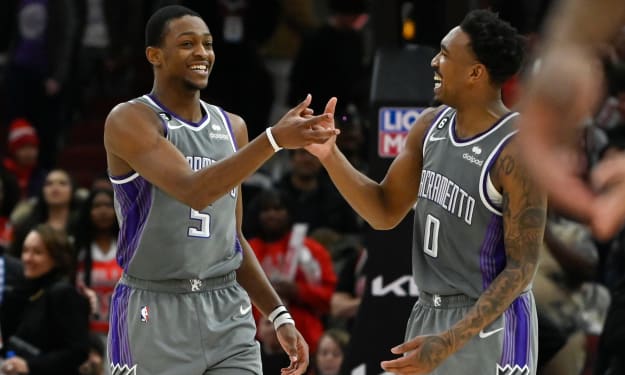
The novel's protagonist, Okonkwo, is famous in the villages of Umuofia for being a wrestling champion, defeating a wrestler nicknamed "Amalinze The Cat" (because he never lands on his back). Okonkwo is strong, hardworking, and strives to show no weakness. He wants to dispel his father Unoka's tainted legacy of unpaid debts, a neglected wife and children, and cowardice at the sight of blood. Okonkwo works to build his wealth entirely on his own, as Unoka died a shameful death and left many unpaid debts. He is also obsessed with his masculinity, and any slight compromise to this is swiftly destroyed. As a result, he often beats his wives and children, and is unkind to his neighbours. However, his drive to escape the legacy of his father leads him to be wealthy, courageous, and powerful among the people of his village. He is a leader of his village, having attained a position in his society for which he has striven all his life.
Okonkwo is selected by the elders to be the guardian of Ikemefuna, a boy taken by the clan as a peace settlement between Umuofia and another clan after Ikemefuna's father killed an Umuofian woman. The boy lives with Okonkwo's family and Okonkwo grows fond of him, although Okonkwo does not show his fondness so as not to appear weak. The boy looks up to Okonkwo and considers him a second father. The Oracle of Umuofia eventually pronounces that the boy must be killed. Ezeudu , the oldest man in the village, warns Okonkwo that he should have nothing to do with the murder because it would be like killing his own child – but to avoid seeming weak and feminine to the other men of the village, Okonkwo disregards the warning from the old man, striking the killing blow himself even as Ikemefuna begs his "father" for protection. For many days after killing Ikemefuna, Okonkwo feels guilty and saddened.
Shortly after Ikemefuna's death, things begin to go wrong for Okonkwo. He falls into a great depression, as he has been greatly traumatized by the act of murdering his own adopted son. His sickly daughter Ezinma falls unexpectedly ill and it is feared she may die; during a gun salute at Ezeudu's funeral, Okonkwo's gun accidentally explodes and kills Ezeudu's son. He and his family are exiled to his motherland, the nearby village Mbanta, for seven years to appease the gods he has offended.
While Okonkwo is away in Mbanta, he learns that white men are living in Umuofia with the intent of introducing their religion, Christianity. As the number of converts increases, the foothold of the white people grows and a new government is introduced.[2] The village is forced to respond with either appeasement or resistance to the imposition of the white people's nascent society. Okonkwo’s son Nwoye starts getting curious about the missionaries and the new religion. After he is beaten by his father for the last time, he decides to leave his family behind and live independently. He wants to be with the missionaries because his beliefs have changed while being introduced to Christianity by the missionary, Mr. Brown. In the last year of his exile, Okonkwo instructs his best friend Obierika to sell all of his yams and hire two men to build him two huts so he can have a house to go back to with his family. He also holds a great feast for his mother's kinsmen, where an elderly attendee bemoans the current state of their tribe and its future.
Returning from exile, Okonkwo finds his village changed by the presence of the white men. After a convert commits an evil act by unmasking an elder as he embodies an ancestral spirit of the clan, the village retaliates by destroying a local Christian church. In response, the District Commissioner representing the colonial government takes Okonkwo and several other native leaders prisoner pending payment of a fine of two hundred bags of cowries. Despite the District Commissioner's instructions to treat the leaders of Umuofia with respect, the native "court messengers" humiliate them, doing things such as shaving their heads and whipping them. As a result, the people of Umuofia finally gather for what could be a great uprising. Okonkwo, a warrior by nature and adamant about following Umuofian custom and tradition, despises any form of cowardice and advocates war against the white men.
When messengers of the white government try to stop the meeting, Okonkwo beheads one of them. Because the crowd allows the other messengers to escape and does not fight alongside Okonkwo, he realizes with despair that the people of Umuofia are not going to fight to protect themselves – his society's response to such a conflict, which for so long had been predictable and dictated by tradition, is changing. When the District Commissioner, Gregory Irwin, comes to Okonkwo's house to take him to court, he finds that Okonkwo has hanged himself to avoid being tried in a colonial court. Among his own people, Okonkwo's actions have tarnished his reputation and status, as it is strictly against the teachings of the Igbo to commit suicide. As Irwin and his men prepare to bury Okonkwo, Irwin muses that Okonkwo's death will make an interesting chapter for his written book, "The Pacification of the Primitive Tribes of the Lower Niger".






Comments
There are no comments for this story
Be the first to respond and start the conversation.